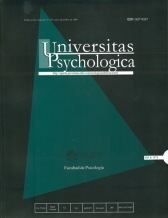Abstract
La comprensión de textos es una actividad psicológica que ha mantenido el interés de investigadores en la ciencia cognitiva. Sin embargo, sólo recientemente han surgido estudios en las neurociencias que intentan develar la maquinaria cerebral que soporta tal proceso. Este escrito revisa algunos de los trabajos clásicos y, particularmente, recientes en la ciencia cognitiva y los avances actuales en la neurociencia de la comprensión de textos. Luego se presenta un potencial modelo neurocognitivo basado en los presupuestos centrales de estas ciencias acerca de la comprensión de textos. Éste conserva las predicciones de los modelos cognitivos acerca de la comprensión y la arquitectura de los nuevos modelos neuropsicológicos acerca del desarrollo neurocognitivo. Finalmente, se presentan algunas preguntas para futuras investigaciones desde las perspectivas cognitivas y neurocientíficas de la comprensión de textos y algunos comentarios de cierreThis journal is registered under a Creative Commons Attribution 4.0 International Public License. Thus, this work may be reproduced, distributed, and publicly shared in digital format, as long as the names of the authors and Pontificia Universidad Javeriana are acknowledged. Others are allowed to quote, adapt, transform, auto-archive, republish, and create based on this material, for any purpose (even commercial ones), provided the authorship is duly acknowledged, a link to the original work is provided, and it is specified if changes have been made. Pontificia Universidad Javeriana does not hold the rights of published works and the authors are solely responsible for the contents of their works; they keep the moral, intellectual, privacy, and publicity rights. Approving the intervention of the work (review, copy-editing, translation, layout) and the following outreach, are granted through an use license and not through an assignment of rights. This means the journal and Pontificia Universidad Javeriana cannot be held responsible for any ethical malpractice by the authors. As a consequence of the protection granted by the use license, the journal is not required to publish recantations or modify information already published, unless the errata stems from the editorial management process. Publishing contents in this journal does not generate royalties for contributors.


